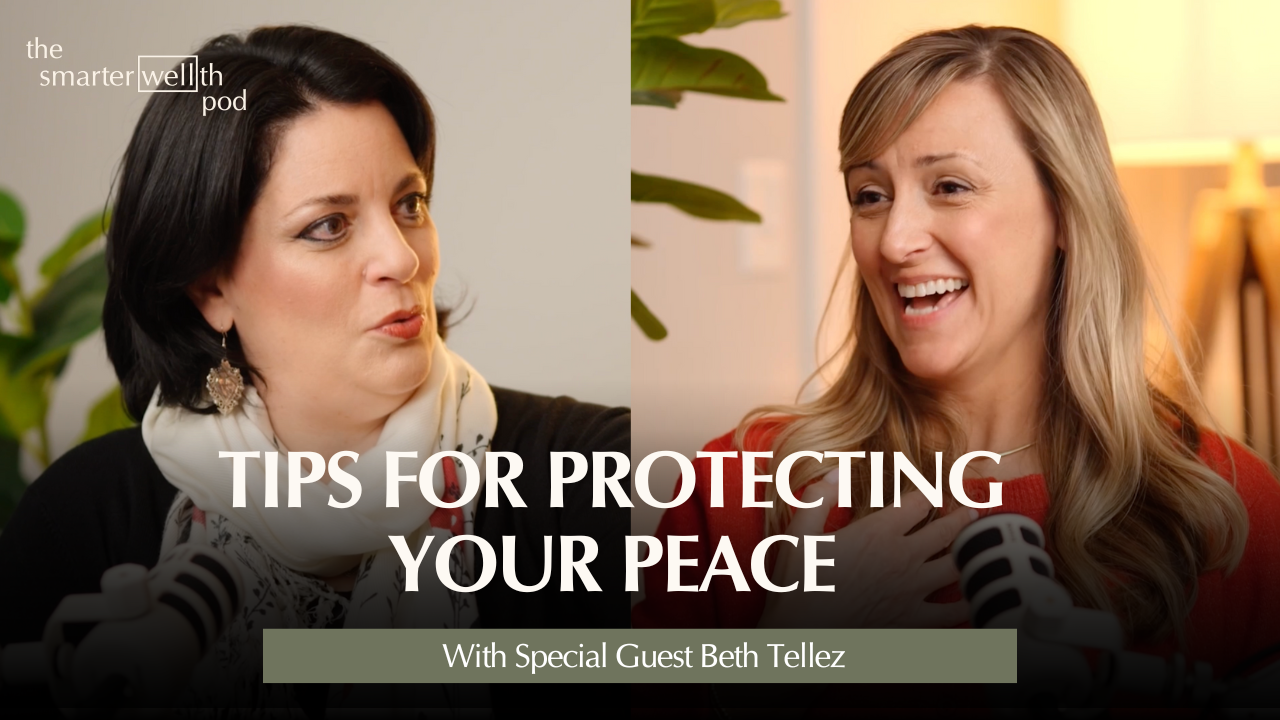
We all know relationships impact our well-being—but what happens when those relationships start to drain us? How do we set boundaries that protect, not isolate? And why is it so hard to do?
In my latest podcast episode, I sat down with Beth Tellez, a licensed therapist and owner of Creative Counseling Center of NW Arkansas, to talk about the often misunderstood but essential topic of boundaries.
Beth brought her expertise in mental health, relational well-being, and therapy to the table, breaking down why so many of us struggle with saying no, how to stop feeling guilty for protecting our peace, and what healthy boundaries actually look like in practice.
If you’ve ever felt overwhelmed by people-pleasing, drained by toxic relationships, or stuck in unhealthy dynamics—this conversation is for you.
Listen to the full episode!
One of the first truths Beth brought to the surface was something so many of us instinctively know but rarely say out loud: most of us were never really taught how to set boundaries.
Think about it. As children, we didn’t learn boundary-setting like we learned spelling or math. We learned through observation, through the unspoken rules of our families, and through the messages we absorbed about what it meant to be “good,” “helpful,” or “selfless.”
For some, childhood was a masterclass in enmeshment—where emotions were shared too freely, personal space blurred, and “no” was never a real option. For others, it was the opposite—rigid, tightly controlled, with little room for autonomy or personal voice.
Layer on top of that the cultural narratives many of us grew up with—especially as women. We were raised to accommodate. To smooth things over. To make people comfortable, even at the expense of ourselves. Whether it was praised or expected, self-sacrifice often got mistaken for love.
So when we talk about boundaries now—as adults—it’s no wonder we feel conflicted. Guilty. Afraid. We’re not just learning a new skill; we’re unlearning decades of wiring that taught us our worth was measured by our willingness to be available to others, no matter the cost.
But here’s the good news: if these patterns were learned, they can be unlearned. We can choose differently. We can begin again. Not with shame but with clarity. With curiosity. With compassion for all the ways we’ve adapted—and a quiet, steady commitment to do things differently moving forward.
Beth made an important distinction:
Walls = shutting people out completely to avoid being hurt
Boundaries = creating healthy limits that allow safe, mutual relationships
Instead of thinking about boundaries as barriers, Beth suggested visualizing them as a fence with a gate—something that protects you without completely closing you off.
Why does this matter? Because too many of us think we have to either be completely open or completely closed off—but healthy boundaries allow space for balance.
Sometimes, we stay in relationships long past their expiration date—whether it’s with a friend, family member, or colleague.
Beth shared some red flags that indicate you need stronger boundaries:
If you recognize any of these patterns, it might be time to redefine the level of access this person has in your life.
One of the biggest challenges people face when setting boundaries is guilt.
That guilt often comes from:
But here’s the truth:
“There is no healthy relationship without healthy boundaries.” – Beth Tellez
Boundaries don’t push people away—they create space for real, honest, and healthy connections.
And if someone pushes back against your boundaries? That’s a sign they were benefiting from the lack of them.
To overcome the guilt that often comes with setting boundaries, it helps to remember that boundaries are not selfish—they’re an act of self-respect. Discomfort is a natural part of growth, especially when we’re rewriting old patterns, and while it may feel uneasy at first, those who truly love and respect you will adapt—and honor the space you choose to protect.
So, how do you start implementing boundaries in a way that actually works? Beth shared some tactical, real-life strategies:
At the end of the day, boundaries are about honoring yourself.
They aren’t about shutting people out—they’re about letting the right people in.
They aren’t about control—they’re about clarity.
They aren’t about punishment—they’re about protection.
And most importantly, you are worth setting them.
My biggest a-ha from this episode?
“If I don’t include my needs, my voice, and my peace in relationships—then there is no real relationship.
Boundaries: When to Say Yes, How to Say No – A must-read for learning how to set limits without guilt.
Attached: The New Science of Adult Attachment – Great for understanding how early experiences shape relationship patterns.
Dare to Lead – Brené Brown’s book on boundaries, courage, and vulnerability.
Find a therapist:
Connect with Beth Tellez & Creative Counseling Center of NW Arkansas:
🌐 Creative Counseling Center of NW Arkansas